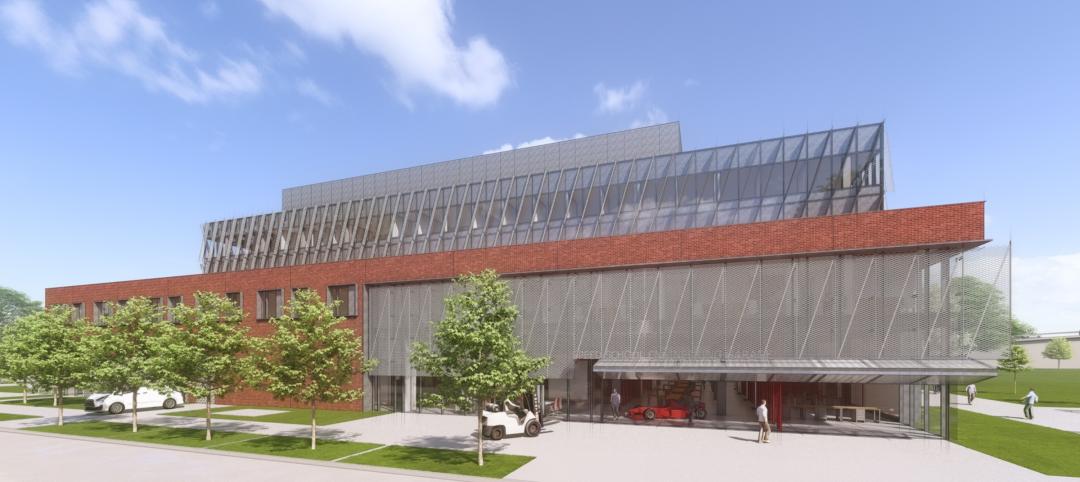Looking back, creating an AEC start-up during the brutal recession of the early 2000’s sounds like the worst timing imaginable. Sounds like a great way to lose everything, a great way to regret chasing a dream, a great way to move back in with your parents. What it doesn’t sound like is the beginning of a success story that defies all logic and luck and proves that 3 people with a big dream can actually become more profitable than they ever imagined. Here’s Ampirical’s incredible story.
Let’s get this straight: Ampirical isn’t just successful—it’s nationally recognized and shattering predictions by growing over 2,000% in revenue in the last seven years.
Ampirical went from three employees to being in the Top 25 of Engineering on Inc. Magazine’s Top 500|5000 fastest growing private companies in just seven years. And they can actually pinpoint why.
Ampirical, By the Numbers:
Staff growth over seven years: From three employees to 77
Percentage staff growth = 2,466%
Engineering revenue in 2006: $391,000
Engineering revenue in 2012: $9,375,000
Revenue growth: 2,297%
Ok, seriously—a comma? Who has a comma in their growth percentage? What is Ampirical doing that makes them so amazing?
First off, their engineering, architectural and surveying work is heralded as a benchmark in the industry and companies from all over the country seek them out for it. No cutting corners there.
But secondly, they prioritize beautifully and their office efficiency is off the charts, so they’re running at maximum billable hours at all times.
For those office management tasks, they credit BillQuick for speeding up their cash flow and helping them “spoil” their regular clients. Here’s how it breaks down:
First They Sped Up Cash Flow
Pamela Flucke, CPA and Controller at Ampirical explains, “BillQuick sped up the invoicing process immensely because all the required information for our workflow is kept in one spot. Previously, we kept time and expense entries in QuickBooks and we had to sync time. Now we’ve eliminated that step entirely. It’s a lot more user-friendly. For example, with QuickBooks, we could only manage to create and send 20-25 invoices a month. Now we’re able to do 100+ a month. It’s grown by leaps and bounds. So as a result our cash flow has improved due to faster cycle time. We typically email instead of manual mail and that saves time too.”
Ampirical credits BQE's BillQuick for speeding up the firm's cash flow.
Then They Managed Budgets Better
Knowing where you stand in regards to the budget is easy when you can automate reporting, Flucke explains. “Project managers are running reports in BillQuick and having them delivered to their email every Monday morning, so instead of having to manually check how many hours they’ve spent so far and how many they have left in their budget, they just know. They’re also starting to manage their employee’s utilization levels with that. They don’t have to think about it—it’s one less thing, since it’s automatically generated.”
They Keep Clients Coming Back
When asked if it helps her juggle clients easier, Pamela laughs, “Yes! And each one wants to see something different on the invoice. We’re up to 20 custom invoices—we’re very accommodating to clients in that way—we like to spoil them. Most of them are repeat clients.”
Here’s How They Made All That Money
While the rest of their staff grew 60% from 2010-2012, and their number of invoices, time sheets and reports grew exponentially, they didn’t have to expand their admin staff. They only added more engineers and specialists to provide even better service, and as a result, their revenue skyrocketed without adding overhead for non-billable staff.
Learn how BillQuick can help you improve your cash flow too.
Read more about Ampirical’s impressive Inc. Top 500|5000 nod here.
Related Stories
Healthcare Facilities | Jul 22, 2024
5 healthcare building sector trends for 2024-2025
Interactive patient care systems and trauma-informed design are among two emerging trends in the U.S. healthcare building sector, according to BD+C's 2024 Healthcare Annual Report (free download; short registration required).
Office Buildings | Jul 22, 2024
U.S. commercial foreclosures increased 48% in June from last year
The commercial building sector continues to be under financial pressure as foreclosures nationwide increased 48% in June compared to June 2023, according to ATTOM, a real estate data analysis firm.
Codes and Standards | Jul 22, 2024
Tennessee developers can now hire their own building safety inspectors
A new law in Tennessee allows developers to hire their own building inspectors to check for environmental, safety, and construction violations. The law is intended to streamline the building process, particularly in rapidly growing communities.
Codes and Standards | Jul 22, 2024
New FEMA rules include climate change impacts
FEMA’s new rules governing rebuilding after disasters will take into account the impacts of climate change on future flood risk. For decades, the agency has followed a 100-year floodplain standard—an area that has a 1% chance of flooding in a given year.
Construction Costs | Jul 18, 2024
Data center construction costs for 2024
Gordian’s data features more than 100 building models, including computer data centers. These localized models allow architects, engineers, and other preconstruction professionals to quickly and accurately create conceptual estimates for future builds. This table shows a five-year view of costs per square foot for one-story computer data centers.
Sustainability | Jul 18, 2024
Grimshaw launches free online tool to help accelerate decarbonization of buildings
Minoro, an online platform to help accelerate the decarbonization of buildings, was recently launched by architecture firm Grimshaw, in collaboration with more than 20 supporting organizations including World Business Council for Sustainable Development (WBCSD), RIBA, Architecture 2030, the World Green Building Council (WorldGBC) and several national Green Building Councils from across the globe.
University Buildings | Jul 17, 2024
University of Louisville Student Success Building will be new heart of engineering program
A new Student Success Building will serve as the heart of the newly designed University of Louisville’s J.B. Speed School of Engineering. The 115,000-sf structure will greatly increase lab space and consolidate student services to one location.
Healthcare Facilities | Jul 16, 2024
Watch on-demand: Key Trends in the Healthcare Facilities Market for 2024-2025
Join the Building Design+Construction editorial team for this on-demand webinar on key trends, innovations, and opportunities in the $65 billion U.S. healthcare buildings market. A panel of healthcare design and construction experts present their latest projects, trends, innovations, opportunities, and data/research on key healthcare facilities sub-sectors. A 2024-2025 U.S. healthcare facilities market outlook is also presented.
K-12 Schools | Jul 15, 2024
A Cleveland suburb opens a $31.7 million new middle school and renovated high school
Accommodating 1,283 students in grades 6-12, the Warrensville, Ohio school complex features flexible learning environments and offers programs ranging from culinary arts and firefighting training to e-sports.
MFPRO+ News | Jul 15, 2024
More permits for ADUs than single-family homes issued in San Diego
Popularity of granny flats growing in California


















